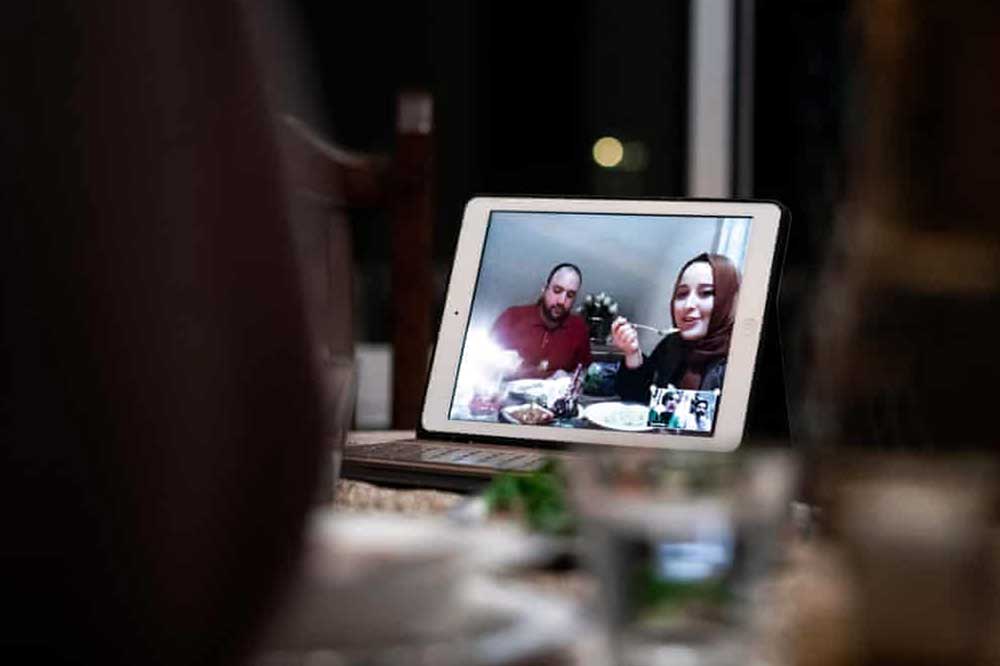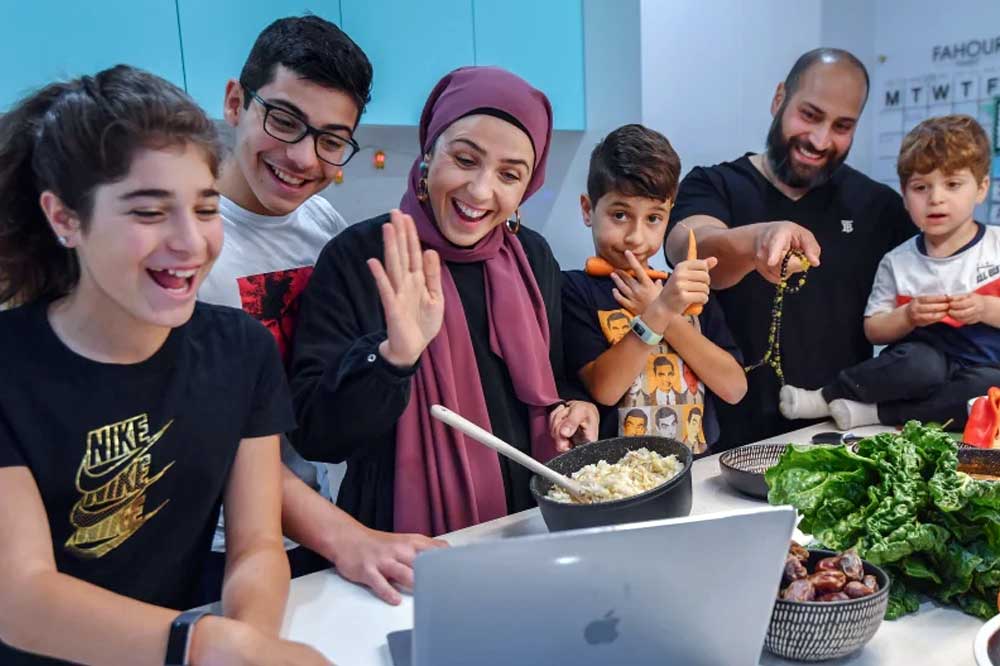
Ramadan, the month that offers an opportunity for introspection, benevolence and spiritual rebirth for 1.8 billion Muslims around the world, is a very different experience this year. With mosques closed and large Iftar and Suhoor gatherings not advised due to the COVID-19 outbreak, there have been huge changes to the rhythms and dynamic of the Holy Month. And tech, which has already been playing an important role during this religious period throughout recent years, has an even more enhanced one as we continue to shelter-at-home.
Here are three ways Muslims are using online tools to stay connected, side step a spiritual void and keep the Ramadan spirit aglow…
1. Hosting virtual Iftars and Suhoors
This is allowing people who are fasting to stay connected, not to mention show off their outfits and culinary arts to friends and family (without having to confess they forgot to add that all-important ingredient.) There are many apps out there that can help people celebrate together in a group call, with Zoom being one of the most popular options. It allows you to start or join face-to-face video calls with up to 100 people, making it perfect for those with a large family or circle of friends that they want to celebrate with at this time.

The lockdown has also seen a surge in people using the fun group video chat app, Houseparty. It allows people to create a virtual version of a house party where everyone can have fun and enjoy a celebration. FaceTime or video-calling apps like Skype or WhatsApp are also being utilised.
2. Joining online Islamic lectures
Feel like you need a spirituality boost during the day while mosques are closed? You can turn to social media and apps, which can be used as virtual spiritual hubs to recharge your faith in God. They are livestreaming motivational lectures, courses and prayers.
#Ramadan Qur'an | An excerpt from Imam @HussainAnwarr's recitation of Surah Ash Shu'ara
— MCB (@MuslimCouncil) April 30, 2020
The story of Ibrahim عليه السلام as it it narrated in the Holy Quran.
JazakhAllah khayran to our brother for sharing. @ukhuffadh pic.twitter.com/Hr8zNwrfLd
Facebook Live, Instagram, the Houseparty app, YouTube, Mixlr and GoMeet are all helping to prevent any potential spiritual vacuum caused by the closure of places of worship. Having a live connection with your imam and local scholars and keeping in touch with worshippers is a great way of keeping spirits high.
3. Finding fabulous recipes
While some restaurants in the UAE have opened, with strict health and safety rules, many people are choosing to stay home when it’s time to break the fast. So Muslims have been turning to bloggers and chefs on social media for inspiration for some delicious restaurant-style recipes in order to prepare Iftar and Suhoor.
This is a great way to try recipes from all around the world. For example, if you feel like a taste of Morocco, turn to Alia Al Kasimi’s Cooking with Alia YouTube channel for inspiration. The Moroccan chef has 357,000 YouTube subscribers.
For delicious Middle Eastern recipes like Makloobeh (an upside down rice dish), you can turn to Sawsan Abu Farha. The Amman-based chef of Palestinian heritage can be found on Instagram (chefindesguise).
Another whizz on the photo sharing app is Amanda Saab (amandasplate), a Michigan-based former Master Chef competitor known for her sweet baked treats. Her Ramadan recipes are inspired by her Lebanese grandmother. Going online is also a chance to find alternative recipes for vegans, vegetarians and those who have certain dietary requirements. If you want to follow a wholesome lifestyle during Ramadan, My Big Fat Halal Blog by blogger Ayesha Razak features healthy meals.

















